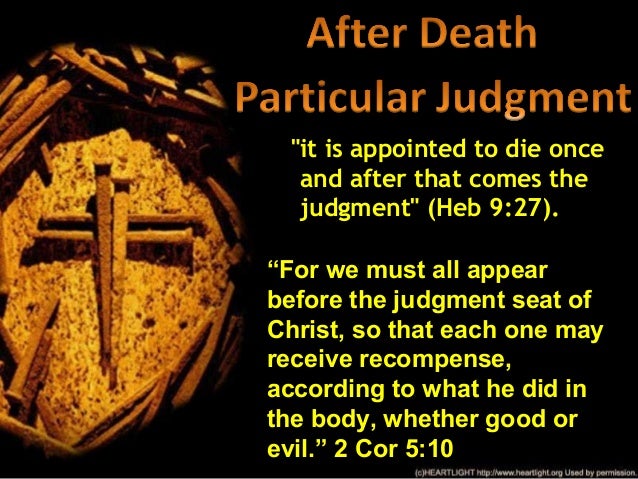The Bahá’í teachings offer profound insights into the concepts of the Day of Judgment and Resurrection, framing them not as ominous predictions of divine retribution, but as transformative events that catalyze spiritual awakening. This interpretation challenges conventional notions of finality and punishment, proposing instead an expansive view of time and existence. What if the Day of Judgment is not merely an endpoint but a profound opportunity for growth and spiritual progression? This query invites intrigue and reflection.
The Bahá’í Faith posits that the Day of Judgment signifies a symbolic rather than a literal occurrence. This concept diverges significantly from traditional eschatological expectations. Within this framework, the Day of Judgment represents a time when individuals recognize their actions, choices, and the inherent consequences of their lives. Rather than a singular moment of condemnation, it constitutes a continuous process of accountability and self-reflection.
To comprehend the Bahá’í perspective, one must first delve into the nature of existence itself. Bahá’ís view life as an ongoing journey towards spiritual and ethical maturation. This journey necessitates grappling with the moral dimensions of one’s deeds. The Day of Judgment, then, emerges not as an external decree but as an internal awakening, wherein individuals confront their own character and essence. How might one cultivate such a reflective practice in daily life?
In order to facilitate this spiritual growth, Bahá’í teachings encourage adherents to engage with the principles of justice, compassion, and love. The concept of justice is particularly salient here; it asserts that true judgment transcends superficial assessments. The Bahá’í Revelation elucidates that justice is a divine attribute that humans must emulate. This incorporation of justice fosters an environment where individuals can embrace transformation without fear of punitive consequences.
The notion of resurrection, in the Bahá’í framework, symbolizes spiritual renewal rather than physical revival. In this context, resurrection can be understood as the emergence of a new understanding and awareness. It denotes an awakening to the realities of the soul and the spiritual worlds that exist beyond the material plane. This process promotes enlightened consciousness, prompting individuals to live in alignment with higher virtues and truths.
Integrating the cyclical nature of life with the concept of resurrection suggests that each moment offers an opportunity for renewal. This perspective can incite a profound shift in how individuals approach their existence. How can the recognition of daily resurrection influence one’s interactions and decisions? This provocative question challenges everyone to consider the profound implications of living each day with intention and mindfulness.
Moreover, the Bahá’í teachings emphasize the collective dimension of the Day of Judgment and Resurrection. Humanity, as a single entity, experiences a collective awakening. In this light, societal progress and development are viewed as an extension of individual spiritual evolution. Just as personal transformation can radiate outward, facilitating communal upliftment, so too does the collective judgment reveal the moral and spiritual state of societies at large.
Exploring the principle of unity, Bahá’ís maintain that the Day of Judgment also reflects humanity’s critical juncture. At this moment, individuals must confront the ramifications of their collective decisions. The moral quality of society directly correlates to the individuals that comprise it. As such, each person’s awakening is vital in fostering communal growth and integrity. What changes might we witness in our world if we collectively embraced accountability and renewal?
Furthermore, the teachings provide a profound lens through which one can interpret the trials and tribulations of life. Adversities, often perceived as inconsequential or punitive, are reframed as opportunities for spiritual enlightenment. The trials faced in life serve to illuminate the paths to personal resurrection, allowing individuals to cultivate resilience and faith. This principle posits that perseverance through hardship can lead to a deeper understanding of one’s self and one’s relationship with the Divine.
However, it is essential to address a potential challenge inherent in this teaching. The idea that the Day of Judgment and Resurrection are ongoing processes can lead to complacency, where individuals may not fully engage with the moral imperative of their actions. To mitigate this risk, the Bahá’í faith emphasizes the importance of deliberate meditation and proactive engagement with spiritual principles. How can one balance the serenity of divine justice with the urgency of moral action?
The path forward involves remaining vigilant in the pursuit of personal and collective transformation. Engaging in spiritual practices that promote self-awareness, such as prayer, meditation, and service to others, can significantly enhance this journey. It is in serving others that one truly embodies the principles of compassion and justice, thus contributing to the collective resurrection of humanity.
In conclusion, the Bahá’í teachings on the Day of Judgment and Resurrection present a transformative paradigm. Rather than instilling fear, these concepts inspire a deeper engagement with the moral and spiritual dimensions of existence. Acknowledging the ongoing nature of judgment empowers individuals to live with intention, fostering a sense of personal accountability that can propel both personal and collective advancement. Ultimately, the call to spiritual awakening resonates compellingly, urging all to recognize that each day presents an opportunity for resurrection—a chance to rise anew, imbued with purpose and clarity in the pursuit of truth and unity.
